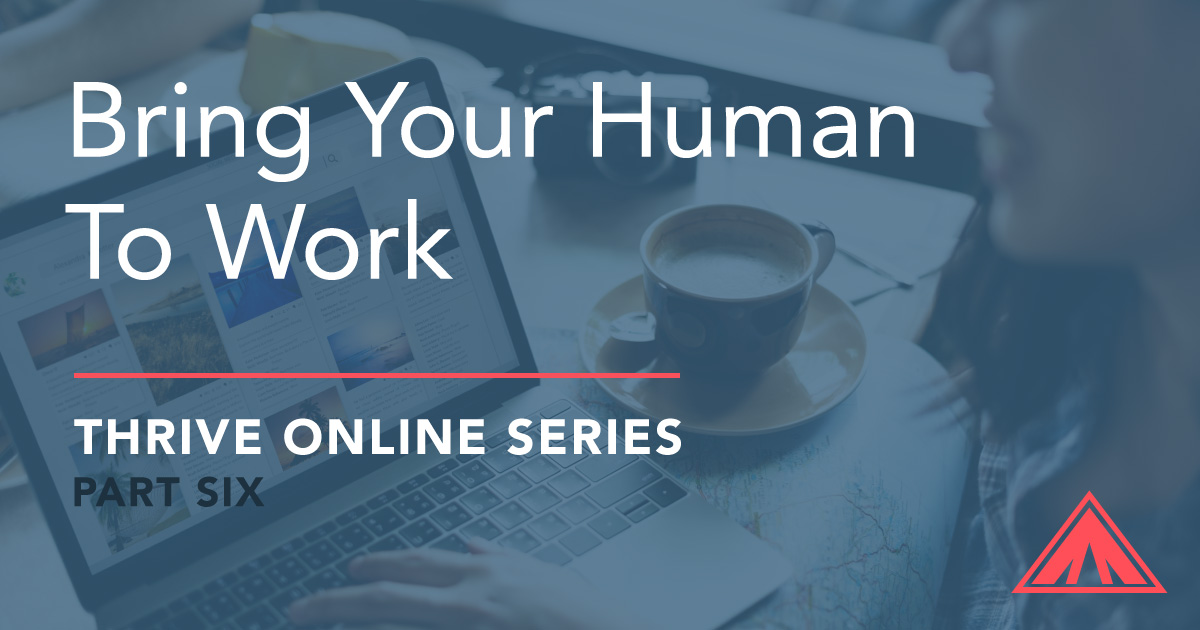Unless you’re working on a top-secret AI project, you probably sell to humans.
Household necessity or indulgent luxury, assembly line product or one-on-one consulting services – no matter what you do, ultimately a real live human will be on the receiving end. Each with a unique blend of favorite tv shows, work stresses, preferred Starbucks orders, quirky behaviors, downplayed talents, and travel daydreams.
Why am I stating the obvious? Because this is very easy to lose sight of and find yourself wondering why sales are down, or why you feel drained by your work.
Pause and think about your ideal customers – favorites in the past and dream customers in the future.
Consider:
- What problem are you helping them solve?
- How are you enhancing their life?
- What security do you add?
- Are they demonstrating achievement through owning your product?
- What emotion will they experience by working through your program?
- Why should they choose you over someone else?
- What would they tell their friends about you?
The relevance of each prompt will vary based on your industry.
What’s important here is refocusing on the ultimate outcome – the whole reason your company exists.
People are more responsive when you tell them how you’re going to make something better / easier / just plain nicer in their lives. This is an improvement over talking at them with a list of features or self-focused messaging.
It’s easy to lose sight of this.
Maybe you have a stack of orders to ship before the post office closes. Maybe someone mentioned brand positioning and you went down that rabbit hole, wondering if you’re being perceived the right way.
It’s okay. This is all part of our wild landscape as business owners.
Try reframing a features list into benefits. How do your customers benefit from your product or service?
What got you into this to begin with?
A good answer will help in your marketing because people trust authenticity.
A good answer will add a bit of purpose back into your day because your work won’t just be about what you’re getting (i.e., a paycheck), but the value you’re putting out into the world. You’ll also draw in more of your ideal customers, rather than just anyone with money. No deal is better than a bad deal.
Whether you sell sustainable decking materials or the best burger in town, this will help increase engagement with social media posts and content marketing. Wording and promotions will hit home with your ideal customers.
A really good answer is the difference between being a commodity and a household name.



![Sleight of Handyman (Tools vs. Craft) – Thrive Online [Part 5]](https://ignitedesignagency.com/wp-content/uploads/2019/02/blog-cover-thrive-series-p5-500x383.jpg)
![Mindset: The Key To Better Outcomes – Thrive Online [Part 4]](https://ignitedesignagency.com/wp-content/uploads/2019/02/blog-cover-thrive-series-p4-500x383.jpg)
![Avoiding the Pitfalls of Chameleon Marketing – Thrive Online [Part 3]](https://ignitedesignagency.com/wp-content/uploads/2019/01/blog-cover-thrive-series-p3-500x383.jpg)
![Don’t Make Me Turn This Plane Around – Thrive Online [Part 2]](https://ignitedesignagency.com/wp-content/uploads/2019/01/blog-cover-thrive-series-p2-500x383.jpg)
Leave A Comment